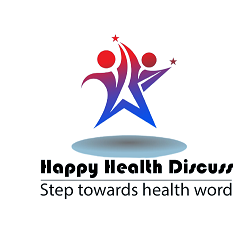It is no secret that products that reduce the prostate can be beneficial to prostate health. However, there are some foods that should be avoided if you want to keep your prostate healthy. In this blog post, we will discuss 10 foods that shrink the prostate and should be avoided for prostate health. We will also provide tips on how to make healthier food choices that can benefit your prostate health. So if you are looking for ways to improve your prostate health, read on to learn about the foods that you should avoid for optimal prostate health.
Dairy
Dairy products can be a source of fat and can raise the risk of prostate enlargement. In particular, whole milk, cheese, and ice cream are high in saturated fats which can increase inflammation in the body. Additionally, they contain hormones that can contribute to prostate enlargement. Therefore, it is best to limit your intake of dairy products if you are looking to reduce the size of your prostate. Instead, focus on consuming products that reduce the prostate such as yogurt and low-fat cheese. These foods contain beneficial probiotics that can help promote a healthy gut microbiome and aid in digestion. Additionally, incorporating more plant-based proteins like legumes and nuts can be beneficial for prostate health.
Processed meats
Processed meats are often high in saturated fat and have been linked to prostate enlargement, or adenomaprostate. Studies show that consumption of processed meats increases the risk of developing prostate cancer as well as increases the risk of prostate enlargement. Processed meats like bacon, sausage, hot dogs, salami, and deli meats should be avoided if you are looking to maintain a healthy prostate. These foods may also contain carcinogenic compounds that could increase your risk of prostate cancer. So, it’s best to stick with unprocessed meats and fish that are cooked without added fat or seasoning.
Sugar
When it comes to adenomaprostate health, it’s important to reduce your sugar intake. Eating too much sugar can increase the risk of developing prostate cancer and other diseases associated with the prostate gland. The body processes sugar quickly, causing a spike in blood glucose levels and triggering a surge of insulin. This can have a negative impact on hormone balance, which may contribute to an enlarged prostate.
Excess sugar consumption is also associated with weight gain and obesity, both of which are linked to higher risk of developing adenomaprostate diseases. It’s important to remember that the sugars found in fruits and vegetables are still beneficial for health and should not be avoided. Instead, focus on reducing your intake of added sugars from processed foods, desserts, and sugary drinks.
Alcohol
When it comes to alcohol, there is a lot of conflicting information about its effects on the prostate. Some studies show that moderate consumption of red wine and beer can reduce the risk of developing prostate cancer. However, excessive consumption of any type of alcohol has been linked to an increased risk of prostate cancer. Therefore, it is best to limit your consumption of alcoholic beverages and avoid binge drinking.
Furthermore, if you are looking for Products that reduce the prostate, alcohol should not be one of them. There is no scientific evidence to suggest that drinking alcohol can reduce the size of the prostate or improve prostate health in any way. It is important to note that alcohol can interfere with certain medications used to treat benign prostatic hyperplasia (BPH) or prostate cancer, so it is best to consult with your doctor before consuming any amount of alcohol.
Caffeine
Caffeine can be found in many beverages and foods, including coffee, tea, energy drinks, and chocolate. While it may provide a temporary boost of energy, drinking too much caffeine can have a negative impact on your prostate health. Caffeine is thought to be linked to an increase in DHT, which is the main male hormone responsible for causing an enlarged prostate. Studies have also shown that caffeine can lead to increased urination and bladder irritation.
It’s best to limit your caffeine intake if you want to reduce your risk of an enlarged prostate. Try to drink no more than one or two caffeinated beverages per day and avoid having them close to bedtime. If you do choose to consume caffeine, be sure to choose caffeine-free alternatives such as herbal tea or sparkling water.
